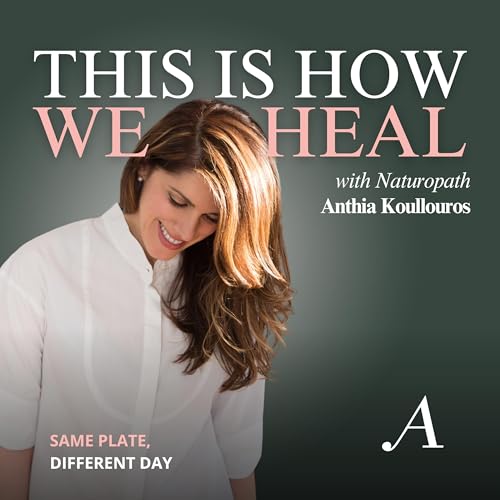This is how we heal: What is illness, what is healing? "Healing is not a war on the body, but a conversation with it." Illness isn't simply something wrong with you, and healing isn't just about the quick fix. In this foundational episode of This is How We Heal, we look at the concepts of illness and healing and what holistic health really means. This isn't just another wellness podcast; it's born from three decades of clinical conversations that never had quite enough time, from the deeper questions that go beyond "what supplement should I take?" It's for anyone who's sick and tired of feeling sick and tired, overwhelmed by wellness noise, or simply yearning to feel like themselves again. In this episode, we explore: The language of healing and how it should be redefined Disease vs dis-ease Why symptoms aren't problems, but instead act as messengers Redefining the Language of Healing Words carry power, and in health and healing, they carry stories - some inherited, some imposed, some deeply internalised. How we name what we're experiencing shapes how we relate to it, and how we relate to it shapes how we heal. Illness isn't simply something wrong with you or a malfunction to overcome. It's an experience. It's the body or spirit whispering that something needs care, something is out of rhythm. When we stop blaming the body for breaking down and start seeing illness as a message, healing becomes possible. Disease versus Dis-ease - while "disease" is a clinical diagnostic term, "dis-ease" opens up space for meaning. It literally means a lack of ease - a disruption in your natural rhythm, whether in digestion, breath, energy, relationships, or joy. Dis-ease can be physical, emotional, relational, spiritual, even ancestral. Sometimes it arises from unsafe environments, unmetabolised fear, chronic overgiving, or living out of alignment with who we really are. Symptoms aren't problems. They're messengers. They're how dis-ease reveals itself, how the body says "I'm trying to get your attention". A skin rash might be a detox pathway asking for support, a headache could be your nervous system requesting rest, anxiety might echo something unresolved. When we ask "what are you trying to tell me?" instead of trying to eliminate symptoms at all costs, we step into wiser healing. Stress isn't just being busy or overworked. It's what happens when demands exceed your capacity to respond with ease and when you've been stretched too far for too long without the chance to repair. Stress is cellular, affecting your gut, hormones, immune system, sleep, and mood. When unacknowledged, it becomes the backdrop of your entire life until the body speaks more loudly through symptoms and illness. What Holistic Healing Really Means Holistic healing isn't about fixing, curing, or ticking wellness boxes. It's about returning to wholeness, remembering who you are beneath the pain. It's gathering up the parts of yourself left behind in survival mode, building capacity in your nervous system so your body no longer lives in threat, creating safety physically and emotionally, and reclaiming rhythm and rest. Healing often happens quietly. It's in the pause before you react, in the breath that softens your chest, in the walk you take to feel ground beneath you. It's slow, sacred, cyclical, deeply personal. Even when invisible, it changes everything. Why This Podcast, Why Now? We're living in a time of unprecedented disconnection and overstimulation. Environmental toxins, sedentary lives, constant noise, medical systems treating symptoms in silos, wellness industries selling overwhelm in the name of health. People are checking all the wellness boxes - yoga, green juice, supplements - and still feeling exhausted. Why? Because we're not going deep enough, not addressing root causes, not looking at the whole person. What's Coming in Future Episodes Future episodes will take a deep dive into specific illnesses and symptoms through a holistic lens, unpacking the latest health trends, and exploring what gets missed. Topics will include nervous system regulation, trauma (personal and inherited), environmental toxins, ancestral imprints, and the quiet ache of living out of sync with your values. Sometimes I will be sharing clinical insights or reading from my book, other times special guests will join me, including practitioners, thinkers, and storytellers carrying wisdom from other realms of healing. The Heart of the Matter At its core, this podcast offers a steady reminder: you are not broken, and you are not alone. Every episode circles back to the same invitation: to come home to yourself, listen more deeply, tend to what's being ignored, and rediscover that healing isn't just possible, it's your birthright. We don't ask "how do I get rid of this?" We ask "what is it trying to show me?" This is holistic healing, not a war on the body, but a conversation with it. A gentle inquiry, a remembering, a restoration of ease. Practical ...
続きを読む
一部表示
 2025/10/2432 分
2025/10/2432 分 2025/10/1019 分
2025/10/1019 分
